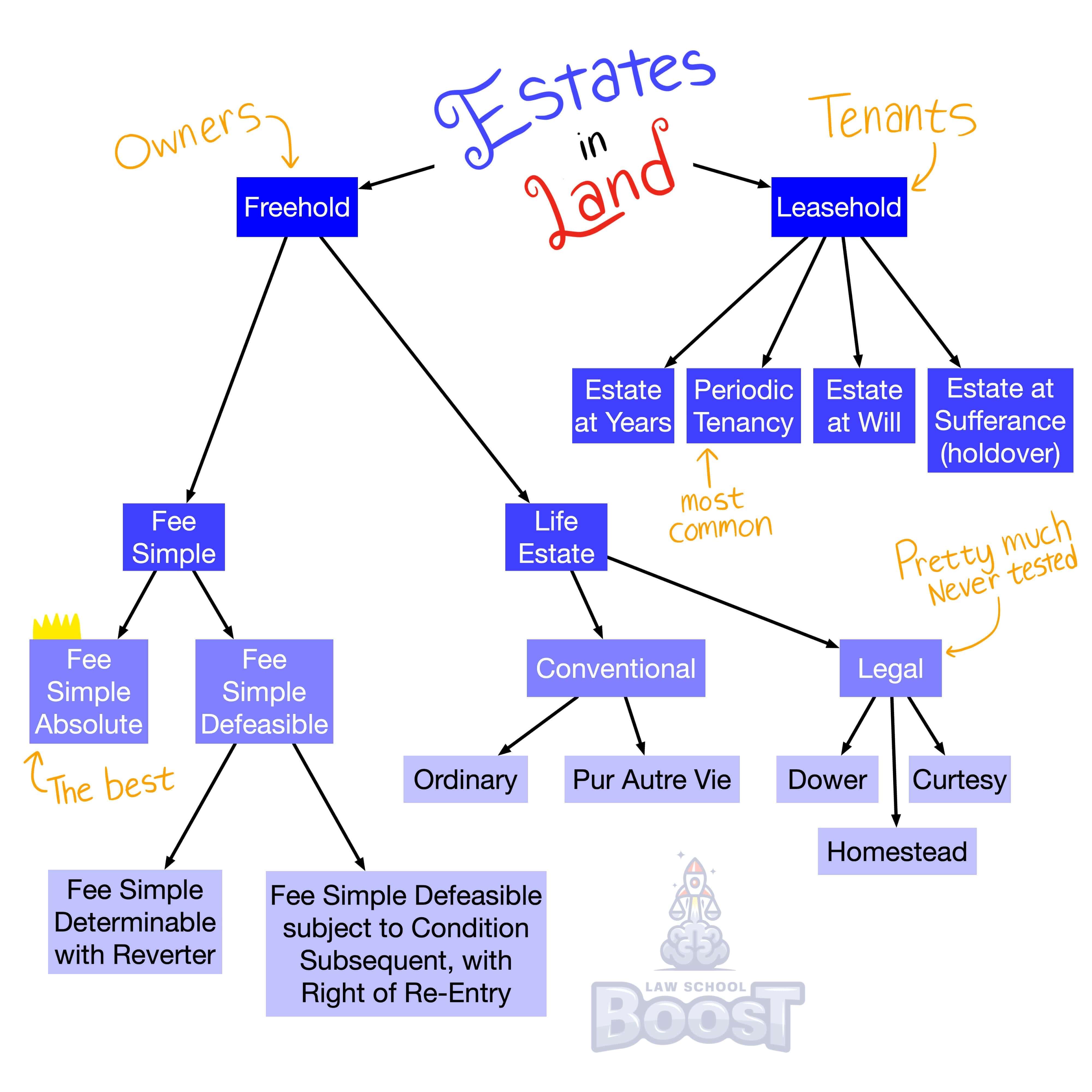😀
Real Property • Landlord-Tenant
PROP#080
Legal Definition
In most jurisdictions, the landlord must put the tenant in actual possession at the beginning of the lease term.
Plain English Explanation
When a tenant leases property, the landlord has an obligation to provide the tenant possession of that property. In other words, if someone else possesses the property, the landlord must ensure that is taken care of before the new lease starts. This is often a problem in situations where a previous tenant holds-over past their lease and begins to infringe on the new tenant's right to possess the property.
Under a majority of jurisdictions, the landlord is required to deal with the hassle of evicting the current tenant to make room for the new tenant. However, under a minority of jurisdictions, it's up to the new tenant to begin eviction proceedings.
Under a majority of jurisdictions, the landlord is required to deal with the hassle of evicting the current tenant to make room for the new tenant. However, under a minority of jurisdictions, it's up to the new tenant to begin eviction proceedings.
Hypothetical
Hypo 1: Amy rents an apartment from Bob. She signs a lease for 6 months, expiring on May 31. After 5 months, she lets Bob know she is planning on moving at the end of her lease. Knowing this, Bob looks for a new tenant. Carl agrees to rent Amy's apartment and signs a lease with Bob to move in June 1st. During the last week of May, Amy lets Bob know she changed her mind and will not be moving. On June 1st, Amy is still in the apartment. Result: Bob has broken his duty to deliver possession to Carl because Amy is still in the apartment on June 1st when Carl's lease begins. At this point, Carl can choose to rent another apartment (even if it costs more) and force Bob to pay for the difference until Bob makes his apartment available for Carl to move in.
Visual Aids

Related Concepts
How do lease covenants affect a landlord-tenant relationship where one party breaches?
How may a landlord waive a covenant prohibiting assignment?
If a leasehold is condemned or taken via eminent domain, what is the effect on a tenant's duty to pay rent?
If an assignment occurs, what is the relationship between the assignee and the landlord?
If a tenant breaches one or more of their duties, what remedies are available to the landlord?
If a tenant violates a covenant against assignment or sublease, what remedies are available to the landlord?
In a landlord-tenant relationship, who has a duty of restoration when the premises being leased are destroyed due to no fault of either party?
In assessing a landlord's tort liability, what six duties does a landlord have to make the premises safe?
In assessing a landlord-tenant issue, what is an assignment?
In assessing a landlord-tenant relationship, what are the landlord's duties?
In assessing a landlord-tenant relationship, what are the tenant's duties?
In assessing a landlord-tenant relationship, what is the result of a tenant's covenant to repair?
What are the exceptions to the hold-over doctrine?
What constitutes a constructive eviction?
What constitutes an actual eviction?
What constitutes a partial eviction?
What is a landlord's duty to provide quiet enjoyment?
What is a landlord's duty to repair?
What is a leasehold estate?
What is a periodic tenancy and how does it terminate?
What is a retaliatory eviction?
What is a sublease?
What is a tenancy at sufferance and how does it terminate?
What is a tenancy at will and how does it terminate?
What is a tenancy for years and how does it terminate?
What is a tenant's duty to not use the premises for an illegal purpose?
What is a tenant's duty to pay rent, and how does it affect their security deposit?
What is a tenant's duty to repair?
What is the hold-over doctrine?
What is the implied warranty of habitability, and what remedies are available to the tenant if breached?
When does a covenant run with the land?
When does a tenant cause ameliorative waste?
When does a tenant cause permissive waste?
When does a tenant cause voluntary waste?


